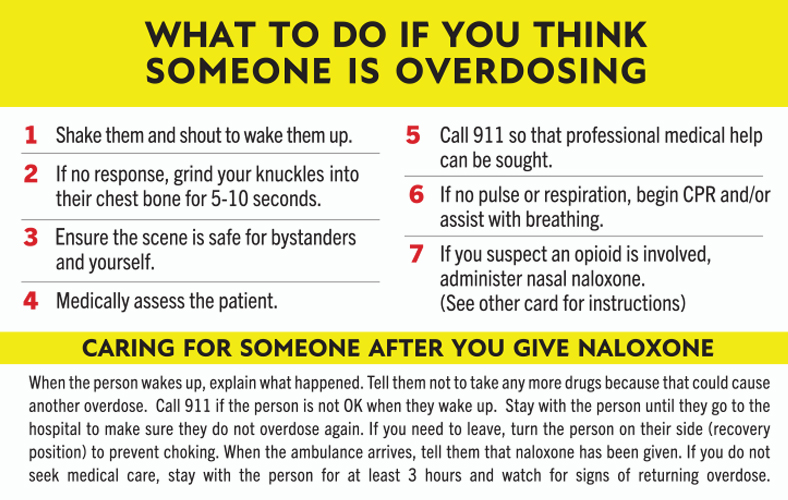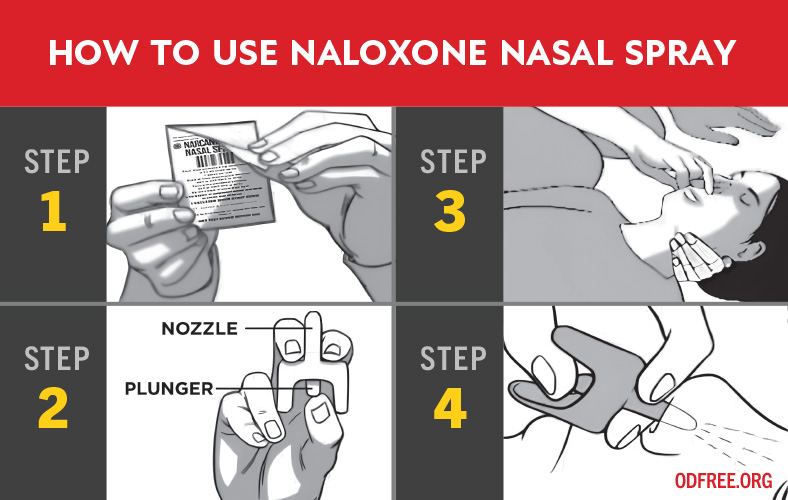Every Second Counts.
Be Prepared to Recognize An Opioid Overdose and Act.
Knowing the signs of an opioid overdose is essential to responding quickly. Watch the video about how to recognize the symptoms of an opioid overdose and for instructions on how to administer nasal naloxone.
Naloxone is a life-saving medication that can reverse an overdose from opioids—including heroin, fentanyl, and prescription opioid medications. Naloxone is easy to use and small to carry.
VIDEO: Learn How to Reverse an Opioid Overdose
Know the Signs of an Overdose…
Know how to identify the signs of an overdose, and know what to do in a situation where someone might be overdosing. Be prepared to save a life. Download our yellow naloxone card and keep it with you to review the signs and take action if needed.
Naloxone Saves Lives
Nearly 68,000 people died from an opioid-involved overdose in 2020. With the right tools, bystanders can act to prevent overdose deaths. Anyone can carry naloxone, give it to someone experiencing an overdose, and potentially save their life.
If you or someone you know is at increased risk for opioid overdose, especially those struggling with opioid use disorder (OUD), you should carry naloxone and keep it at home. Download our red “How To Use naloxone” card, and keep it in your wallet.
Naloxone Can Reverse Overdoses Caused by Opioids
If an overdose appears to be opioid related, emergency responders will likely administer a treatment known as naloxone (also known by brand names such as Narcan and Kloxxado). This life-saving emergency treatment can reverse an opioid overdose by blocking a person’s opioid receptors. The medicine is commonly delivered as a nasal spray, and most law enforcement and emergency responders in Mississippi should have it on hand if needed.
According to the Mississippi Board of Pharmacy, naloxone is now available to most Mississippians without a prescription. You will not be held liable for wrongdoing if you administer naloxone to a person you suspect is experiencing an overdose. Except for a small percentage of people who may be allergic to the medication, naloxone will have no effect on someone who is not under the influence of opioids.
In addition to a wealth of information about opioids and overdoses, the websites for both Narcan and Kloxxado feature instructions for properly administering naloxone. The effects are temporary, and it may take 5 or more minutes for the medication to reverse an overdose. However, if a person is still unresponsive or suffering warning signs, you can administer a second dose of the medication within 2-to-3 minutes if emergency responders have yet to arrive.



